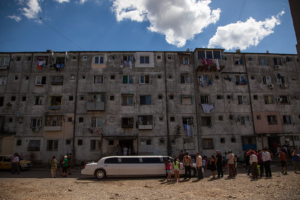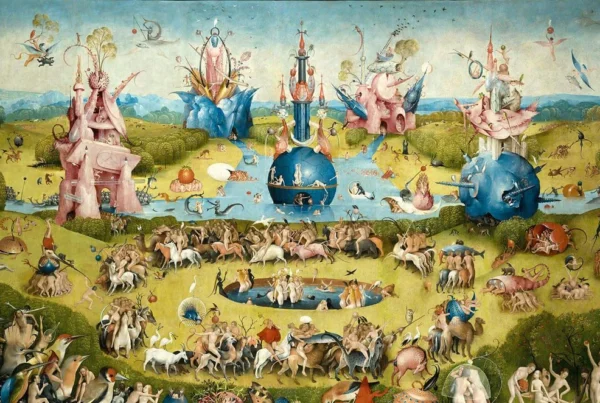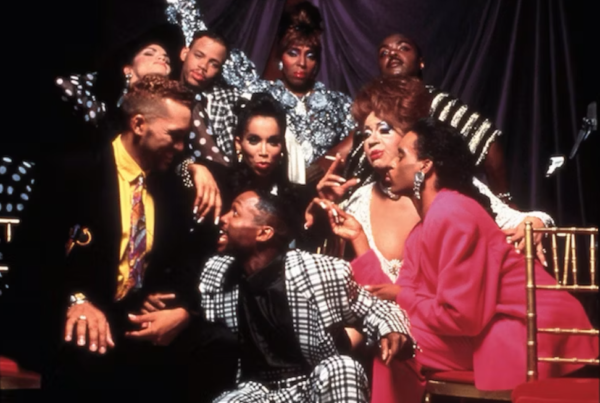
Official poster of the “Soldiers. Story from Ferentari” © Hi Film Productions
In a country where gay relationships are a big taboo, director Ivana Mladenovic takes a deep dive into what it is like to be in a same-sex relationship and part of Romania’s most marginalized group: the Roma.
The film begins with an anthropologist, Adi, who moves to a Roma ghetto outside of Bucharest in order to write his PhD thesis. He rents a place in Ferentari, the borough of Bucharest reputed for drugs, violence and crime.
Adi is writing his PhD on “manele”, a music genre inspired by traditional Roma music that is frowned upon in society. A combination of oriental, Balkan influences mixed with pop music, “manele” is attributed to the lower social strata, yet it is paradoxically present at parties and weddings of the wealthy. To write about manele, Adi cannot remain a mere observe and so he quickly tries to become part of the Ferentari community.
A romantic relationship sparks between Adi and Alberto, a Roma ex-convict living with his cousin. Alberto’s character encompases the vast array of marginalised identities that exist for Roma in Romania. He is in a homosexual relationship, he also suffers from institutionalized racism and a gambling addiction.
Through Alberto, Adi becomes a part of the community in Ferentari. This relationship allows him to takes part in a Roma wedding, meet music producers, and witness firsthand Alberto’s struggles. This raises the question of whether Adi is using the ex-convict as a means to gain access to the community or whether his affection is genuine. However, both Adi and Alberto benefit from this relationship. Alberto receives money, shelter and protection from Adi, showing a blatant imbalance of power between the two lovers.
The film often resembles a documentary. The director, Ivana Mladenovic, presents scenes of gay love and poverty in a simplistic yet profound manner which does not seek to impose any judgement. Instead, these scenes confront the viewers with worlds they perhaps never knew existed, and it allows them to draw lessons from it.
This slow-paced realism laced with time-consuming dialogue is the trademark of a new cinematographic phenomenon called “The Romanian New Wave”. It is a term coined to encompass several internationally acclaimed movies. This kind of cinema manifests itself through dark humor and bleak scenery and it explores the absurdity and corruption that is found in Romanian society. However the New Wave is understood differently in “Soldiers. Story from Ferentari”, as it does not describe the shared grievances of living in a former communist country, but rather, the shared marginalization of other identities. Such as the Roma.

Still from the movie © Vlad Basca
The Latin word “Ferentari” means “soldier in the old pedestrian army”. The soldiers in Mladenovic’s film are the characters, be they minor or major, that live through various struggles. But more importantly, their struggles should not be visible exclusively to Romanian viewers, since the mistreatment of Roma people, and of gay people, is not merely endemic to Romania.

Adrian Schiop and Vasile-Pavel Digudai in the movie © Vlad Basca
Beyond the artistic dimension of the movie, it is crucial to consider the context in which it was created and recent events in Romania that have made the film all the more relevant.
The movie was screened in Bucharest, at The Museum of the Romanian Peasant, in February 2018. One hour before the screening, thirty protesters from a Christian fundamentalist group gathered outside the museum, denouncing the movie as immoral and accusing the museum of spreading “homosexual propaganda”. Ten of the protestors interrupted the film screening, forcing it to stop for several minutes until the police removed them.
Just a few days ago, a referendum took place in which Romanians were consulted on whether to change the gender-neutral terms for marriage in the Constitution to the specification that marriage is between man and woman. While the Romanian Civil Code does not allow same-sex marriages, religious groups have said that the definition in the Constitution weakens the “traditional family”. Similar referendums took place in 2013 in Slovakia, where it failed due to low turnout, and in Croatia, where the Constitution was changed.
The results of the Romanian referendum were overwhelmingly in favor of changing the Constitution, yet the turnout was too low for it to be validated. Prior to the vote, the pro-LGBT camp called for a boycott of the referendum knowing this was the best strategy. The turnout was 20.41%.
Do these results mean that Romania is progressive and accepts people of all sexual orientation? No. The low turnout can be attributed to the frustration with the political class and the general preoccupation people have with other issues such as corruption, education and healthcare — the likes of which are presented in most Romanian New Wave movies.
Knowing that Romania, like many countries, continues to struggle with acceptance of homosexuality, it is clear that “Soldiers. Story From Ferentari” remains ever relevant.
Other posts that may interest you:
Discover more from The Sundial Press
Subscribe to get the latest posts sent to your email.





